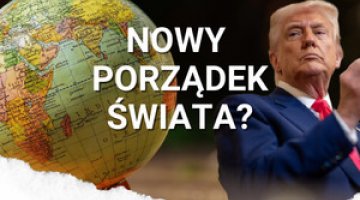Putin visits Vietnam: positive declarations yet problems remain
On 20 June, Vladimir Putin paid an official visit to Vietnam, where he met the country’s top politicians, including the president, the prime minister, the general secretary of the ruling Communist Party of Vietnam and the speaker of the parliament. During the visit, talks were held in a broader format. On the Russian side, these were attended by numerous ministers (of industry, transport, energy, and the deputy minister of defence), heads of state-run institutions (for foreign military-technical cooperation and investment) and CEOs of state-controlled companies (Rosoboroneksport, Zarubezhneft, Novatek, Rosatom and VEB bank). A political declaration and several inter-ministry and inter-company agreements were signed, most of which have the status of non-binding memorandums. The Zarubezhneft company has obtained a licence to develop another field in the Vietnamese economic zone on the continental shelf of the South China Sea (the so-called Block 11-2).
Hanoi has been Moscow’s long-term political partner. What The post-Soviet Russian elite and the Vietnamese communist elite share is their memory of the support which the USSR consistently provided to the Communist Party of Vietnam during conflicts in Mainland Southeast Asia for most of the period between 1945 and the second half of the 1980s (these involved consecutive wars against France, South Vietnam, the United States, Cambodia and China). Their links were particularly strong in the military-technical sector. The Vietnamese armed forces were almost exclusively equipped with Soviet- and Russian-made armaments some Vietnamese officers were trained in Russia. After China, Japan and South Korea, Vietnam is the Russian Federation’s most important trade partner in East Asia and South Asia.
Commentary
- Putin’s visit should be interpreted as an attempt to impart a new dynamic to the bilateral relations and to prevent Hanoi from continuing its pro-Western shift which to a large degree results from its concerns about China’s growing power and assertiveness (Vietnam is in a dispute with China over the delimitation of maritime borders in the South China Sea regarding the continental shelf and the islands). Despite its shift to the East, which it announced at the beginning of the 2010s, in recent years Moscow has neglected its relations with Hanoi. Putin last visited Vietnam in 2017 and trade between the two countries had already stalled prior to Russia’s invasion of Ukraine (especially compared to a spectacular rise in both countries’ trade with China). Following the Russian invasion, the value of Russian-Vietnamese trade fell from around $7 bn in 2021 to less than $5 bn in 2022, and in 2023 it increased by just 8%. An agreement signed in 2017 regarding Rosatom’s intention to build a nuclear research centre in Vietnam has not been implemented so far.
- The decline in Russian-Vietnamese cooperation was also clear in the military-technical sector. According to figures compiled by SIPRI, the value of Vietnam’s imports from Russia decreased significantly from around 2018, and Vietnam began to openly declare its intention to diversify its sources of arms supplies. This drop was also due to Hanoi’s unwillingness to violate US sanctions regarding cooperation with the Russian defence sector. Meanwhile, Vietnam began to actively develop its economic cooperation with the West and its political & strategic relations with the US.
- The visit has been largely designed for its propaganda effects. Both sides made every effort to create the impression that the mutual relations are problem-free and that they are willing to enhance cooperation in all fields. The Russian side has expressed its appreciation of Hanoi’s “balanced and objective” stance on Russia’s invasion of Ukraine, and Vietnam has declared its support for Moscow’s international initiatives which are de facto anti-Western (the‘Great Eurasian Partnership’, the construction of a security system in Asia which is not based on blocs but on the principle of indivisible security, the ‘de-politicisation’ of the Organisation for the Prohibition of Chemical Weapons, the fight against ‘historical revisionism’ regarding the Second World War etc.).
- Aside from the licence for Zarubezhneft, the visit has failed to bring about specific results in the form of agreements which could revive economic or military cooperation between Moscow and Hanoi (even though the Russian delegation included as many as three officials responsible for military-technical cooperation). After his talks with representatives of the Vietnamese leadership, during a meeting with graduates of Soviet and Russian universities, Putin admitted that there were major problems hampering payments in bilateral trade and revealed that Hanoi refused to handle Western-made passenger planes operated by Russian airlines. Alongside this, he effectively accused the Vietnamese side of lacking the political will to devise an effective payments mechanism. It is unlikely that Hanoi will modify its current cautious policy as regards sanctions violations, considering the importance of Vietnam’s dynamically developing economic cooperation with the West (it is currently hosting foreign investments worth $36 bn) and the need to seek US support in the context of China’s growing role.





